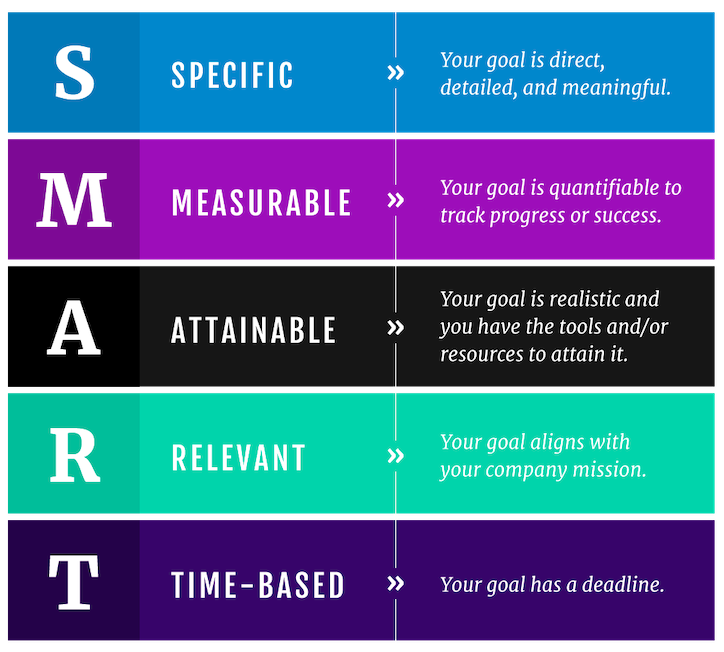Unlike content marketing, which involves lengthy periods of research and creation, pay per click advertising (PPC) only requires franchises to know what serious buyers are looking for on search engines.
The elements of an optimized PPC campaign—eye-catching headlines, concise one-sentence summaries, and wisely chosen keywords—can be very effective in generating leads when combined with an attractive and compelling landing page on your franchise website.
In addition to being relatively straightforward, PPC can be cost effective when executed properly.
In this post, we'll discuss how to set up your first campaign and best practices that will help you get the most bang for your buck.
What is franchise PPC?
PPC ads (also called paid search ads) are sponsored search results. Every time a person clicks on your ad, your franchise pays a set amount of money to the search engine.
How does franchise PPC work?
PPC advertisers participate in an automated “auction” which occurs every time someone types a keyword into the search bar.
Different advertisers place a bid on a particular keyword. This is the maximum amount they’re willing to spend when someone clicks on their ad.
Whoever is willing to pay the most every time someone clicks on the ad can increase their ability to appear in the top position.
However, your ads’ “quality score,” can also affect how high and how often you’re able to rank, and how much you have to pay for those appearances.
This score is Google’s measure of:
- The quality of your ad
- The relevance of your ad
- Keyword match closeness with the actual query
- Landing page applicability to the searcher’s query
Depending on the amount you bid and your quality score, your ads can appear at the top of results when your keyword is searched for. Other times, they won't appear at all.
Who benefits most from PPC strategies?
Franchise SEO vs. Franchise PPC
When it comes to pay-per-click (PPC) advertising versus search engine optimization (SEO) for franchise companies, it comes down to what is best for your business and your marketing goals.
For those who are unfamiliar, SEO is a set of tactics spanning a number of disciplines from web design to copywriting which seeks to help businesses gain better visibility in unpaid search results.
This means that businesses practicing SEO are attempting to appear in search results organically instead of paying for the privilege.
While some contend smaller franchises just getting off the ground should focus their marketing dollars on PPC, others think this kind of approach is pointless regardless of the size or type of business.
Our answer to this ongoing debate varies from case to case and business to business. In particular, it depends on:
- What you're selling (products, services, or both)
- How you're selling them (e-commerce or non-e-commerce)
- Whether you're working for corporate or own a location, because this effects your marketing goals, (i.e. do you want more sales to customers or more franchise buyers right now?)
Here's our take.
Franchises trying to sell more products in person
Arguably, the most important factor to consider when planning a franchise marketing strategy has to do with the type of keywords your business needs to rank for in search engine results.
These are the words and phrases potential franchisees type into Google in the hopes of finding the right franchise opportunity for them, and customers use to search for products and services.
Larry Kim, Founder of Wordstream and Mobile Monkey, conducted research some years ago.
He found queries for keywords that displayed high commercial intent, described as “keywords that trigger the Google Shopping/Google Products Listing Ads” resulted in users clicking paid listings almost twice as frequently as unpaid ones.
The takeaway: for those trying to sell a product, PPC can be a powerful tool.
In the franchise world, this sort of strategy might be extremely effective for the products your franchisees sell to customers.
Franchises trying to sell more services in person
In our experience, Both SEO and PPC can yield satisfying results for service franchises. By targeting the phrases customers use to describe the services they're actively seeking and words they use to find vendors, franchises can instantly put ads for free quotes in front of the people who already want help.
SEO can also be useful when it comes to attracting potential customers higher in the funnel not yet ready to buy, such as those trying to diagnose the problems your business solves, as well as those who want to learn about potential solutions.
This can be done by creating informational content and in-depth service pages targeting search terms customers tend to use that answer their questions so they become more ready to buy.
For example, we took this approach (along with other local SEO best practices) in putting together local pages for a national concrete franchise, and helped five of their locations altogether increase site user sessions originating from search engines by 21.59%.
The same locations experienced an increase in lead form submissions of 32.35% from our entire local service strategy, which included both PPC and SEO.
Franchises doing e-commerce
So what if you have an e-commerce site?
According to Forbes, “By 2026, 24% of retail purchases are expected to take place online.”
For sites that sell products online, including franchises, SEO is essential to maintaining a welcoming virtual store that encourages conversion and can help attract customers. While user experience is important for any site, it’s especially important when a visitor’s annoyance level could be the difference between making a sale or losing one.
Meanwhile, shopping ads may be the most effective route when it comes to paid advertising. Historically, they’ve accounted for as much as 75% of clicks from product searches that weren’t brand specific and have driven as much as 85% of paid clicks for vendors.
That said, for strategy purposes, it’s important to keep in mind that franchises doing e-commerce will have to compete with goliath online retailers like Amazon in search results and ads.
Franchises trying to attract more franchise buyers
Okay, so what if you’re less concerned with customers and more concerned with growing your network of franchise partners?
Unlike a product, franchisors are selling an opportunity—one that requires a substantial investment and most likely, a lengthy selling cycle.
Prospective business owners aren’t looking for a product page to learn about the business opportunity. They need an entire website devoted to delivering a variety of resources to get acquainted with the brand, the people, and the benefits that come with joining a family of franchise partners.
Luckily, this content-oriented approach provides two marketing advantages simultaneously.
First, with a strategic franchise content strategy in place, you can create a website filled with exactly what Google wants to see.
Second, when optimized with keywords your ideal customer is searching for most, you’ll start attracting prospects that actively want to learn about your company and are serious about making an investment.
Learn more about franchise SEO with our free guide →
Creating a franchise PPC campaign, step by step
Step 1: set campaign goals
Before getting started, make sure you've set up concrete goals for your PPC campaign that align with broader marketing and business goals.
The SMART framework is a good tool for this:

For example, a smart goal for a B2C concrete repair franchise looking to grow might be:
"generate 2x qualified web leads by the end of Q4." It's direct and clear (S); quantifiable by form submission data (M); not so optimistic that it's unattainable (A); relevant to the franchise's overall goal of growth; and has a deadline (T)."
Step 2: determine your franchise PPC campaign's scope
We often recommend that clients start with a short, lower budget PPC campaign to test the waters and gather baseline ad performance data before laying down serious money.
Consider:
- How long will your campaign run?
- Will this be part of a broader marketing strategy that invests in other tactics, like SEO?
Step 2: Consider your ideal buyer
If your campaign is aimed at prospective franchisees, do you have a clear idea of the sort of person who'd be a good fit?
If your campaign is aimed at franchise customers, do you have a clear idea of what your model customer looks like?
These summaries of what makes a great buyer are called "buyer personas." They're write-ups describing a particular type of buyer or franchisee you like working with best. They contain information like relevant demographics, motivations, and common sales objections.
Many businesses do business with different types of people, and therefore have more than one of these. If you don't already have at least two profiles, (one of the ideal franchisee and another of the ideal franchise customer) it might be worth your time to capture these on paper.
Why?
Because even if you have a clear idea of what these groups of people look like, it's possible that not everyone on your team—particularly your newest sales, marketing, and service employees—has a crystal clear idea who they're addressing on a daily basis.
Learn more about making personas →
Step 3: determine your franchise PPC campaign's scope
We often recommend that clients start with a short, lower budget PPC campaign to test the waters and gather baseline ad performance data before laying down serious money.
Consider:
- How long will your campaign run?
- Will this be part of a broader marketing strategy that invests in other tactics, like SEO?
Step 4: Ensure your site is lead-ready
Before sinking money into PPC, be sure you have the marketing and sales infrastructure in place to effectively convert and manage the leads you generate.
This means you should have:
- An easy-to-edit content management system like HubSpot that enables you to create new landing pages customized to your campaign
- A means to receive notifications when a customer makes contact so you can reply immediately
- A customer relationship management (CRM) tool that keeps your entire sales team on the same page
Step 5: Choose search terms
Do some research with a tool like Google Keyword Planner and choose which terms to bid on based on your campaign goals and offer. You can bid on keywords manually or choose from one of Google Ads' smart bidding (automated) options. The latter is probably a better option in most cases, particularly if you're new to PPC.
The nitty gritty of this process is a guide unto itself. To learn more about picking great search terms for your ad groups, check out this resource →
Step 6: Set up your campaign
Next, you want to configure your campaign settings to reach your target audience. You can fine tune based on time of day, location, languages, and more.
Step 7: Set up your ad groups
Create a separate ad set for each group of distinct, related keywords in your campaign. For example, if you operated a cleaning business, you could create a separate ad group for each service offering, such as house cleaning and move-out cleaning.
For each ad set, create at least three distinct ads to maximize the possibility of a particular ad piquing your viewer's fancy and to better compare performance.
Finally, add a lead form right in Google ads that clickers can fill out and create a custom landing page for each ad set that uses the same keywords and messaging your ads do.
Step 8: Add extensions (now called "assets")
 Source: Michaels
Source: Michaels
To maximize ad performance, add assets (formerly called "extensions") to your ads. Extensions are additional information that Google sometimes tacks onto ads.
They range from displaying a franchise location's phone number to linking to site pages, or displaying your business location. They're simple to set up and well worth taking advantage of.
Now you're all set! Don't forget to publish your campaign and let it run for at least a few weeks to rake in the data and give it a fair shot at generating leads.
Step 9: Tweak
One of the benefits of PPC over other digital marketing tactics is that it's remarkably easy to tweak. After a little time has passed, check on your campaign and make some surgical tweaks to ensure you're making the most of your ad spend.
First, cut out keywords that aren't getting conversions, are showing up for irrelevant results, or are otherwise not giving you a good return.
Second, do the same cost/benefit analysis with your ads. Which ads have the highest click through and conversion rates? If an ad has a below average conversion rate and click-through rate, pause it and consider replacing it with a new ad that's more like the ads that are working.
Third, make more bid adjustments now that you have some hard data to work with. Are there times of day you know your customers or prospective franchisees are more likely to be online? Are leads from certain locations worth more than others?
You can customize how much money you're willing to pay per click within specific parameters like time of day or location.
For example, if you're located between cities and you get more valuable leads from one than the other, you can increase your budget for ad clickers located in the preferred city, while the budget remains the same for the other.
Finally, under the "recommendations" tab in your Google Ads account (if you are using Google) there will be custom recommendations to improve your ad performance. As long as it makes sense, take Google's advice. It knows what it's talking about.
Franchise PPC strategy tips for success
Now that you're off to a running start, here are a few things to be mindful of if you’re not seeing your ads gain traction.
Test to find the best keywords
Reaching out to users who aren’t interested in your opportunity is a problem that plagues many franchises. The more disengaged people that curiously click on your link and fail to convert, the more you end up spending on failed leads.
To identify which keywords will give you the best results, it’s important to test different match types.
Source: Google
You can do this by setting up different campaigns that target the same keywords and have the same budget but use different match types and see which one performs best. For example, one campaign might use broad match, while the other uses exact match.
Create the best franchise landing pages
Franchise PPC campaigns are only as strong as their landing pages.
If you’re going to spend the time, energy, and money to put together a PPC campaign, ensure you’re supporting it with an equally thought-out landing page.
If you’re using multiple ad groups to target different aspects of your franchise opportunity, create landing pages tailored to each one.
The key is to match the message of your PPC ads to the message and content of your landing pages.
This is sometimes referred to as “conversion coupling.”
The goal here is for:
- The offer to clearly match the ad
- Drop a visitor right where they can sign up
- Provide enough information for them to get a taste of the program
- Be simple and easy to read
- Make the next step you want them to take clear
Landing pages that are categorized and linked to relevant ads stretch your franchise PPC campaigns much further.
As Iain Dooley, author of “Your First Three Months on AdWords,” says, “ When we direct people to category specific landing pages, we easily see 2x - 3x increases in conversion rate.”
While ad layout and landing page design are crucial, making sure you’re delivering on the expectations your PPC ads establish is the first step toward seeing success with your ad campaigns.
If visitors are enticed by a specific keyword and click through to a landing page that is much more generic (such as a home page), don’t expect them to stick around long enough to submit a form.
When competitors bid on your branded keywords, follow suit
If you Google your brand or product name and competitor ads show up, odds are, they are paying to appear for your branded keywords. Believe it or not, this is actually a common strategy.
Fortunately, you can take back what’s yours by bidding on your own branded keywords. This is smart for a couple of reasons:
- If prospects search for your franchise and only see your competitors’ ads, this reduces the chance of them coming across your opportunity, or at least distracts them.
- Adding your company name to PPC campaigns allows you to track general brand recognition over a period of time. While it’s difficult to get a solid idea of how many people search for a specific company, it’s possible to compare PPC data month-to-month to get a general idea of how well your brand is recognized and searched out specifically by potential buyers.
Track how your ads are influencing conversions
One of the biggest mistakes companies make is failing to track the success of their campaigns.
It's very useful to track the journey an individual takes from clicking on your ad to converting into a customer on say, a form on your website.
This not only helps you measure (and prove) the effectiveness of your ad campaign, but also gives you an insight into what influences and helps convince a lead to buy.
You can do this with software like HubSpot that can attribute actions to a specific individual within a single contact record compared to an anonymized analytics platform like Google Analytics.
Pay for keywords you can't rank for organically & vice versa
If blogging or other searchable content is part of your digital marketing strategy, it may be smart to use PPC and SEO together strategically.
Target valuable search terms that are expensive to bid on and pay for placement for keywords that are competitive to rank for organically.
For example, if you want to appear for the term "arborist madison wisconsin" but it costs a whopping $20 per click, you might try to create a page on your site that could appear for the term instead.
Likewise, if you're trying to appear for the search "landscaper madison wisconsin" but there's a lot of competition in the unpaid search results, but it only costs $1 per click, you could bid on that term in an ad campaign.
Conclusion
PPC ads are a great way for franchises to get the word out about franchisee products and services and generate some quick wins.
But adding SEO content lead generation to the mix, can help generate long-term results, especially for franchisors seeking to educate prospective owners on their franchise opportunity.






